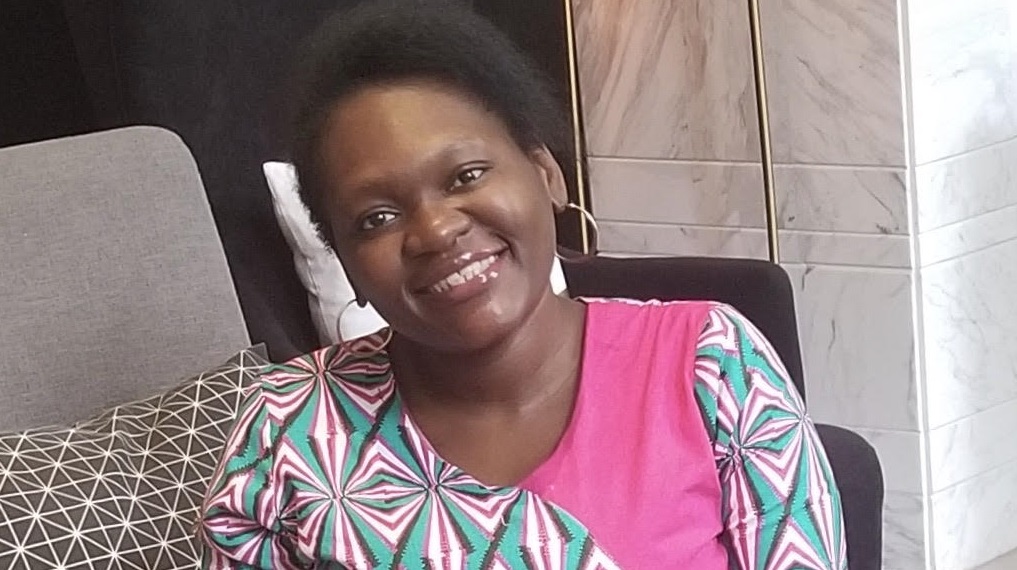
Five Questions with Soazic Elise Wang Sonne, a Young Professional wih the World Bank Group, whose main research interest is on the intersection of applied development impact evaluation in conflict and fragile settings using quantitative data. Soazic is a strong advocate of research transparency and reproducibility in social sciences. She was a speaker at the online conference, ‘Assessing the Development Impacts of Private Sector Impact Investments’ on 2-4 Dec, 2020, co-hosted by The European Investment Bank (EIB) and Global Development Network (GDN), and held in partnership with The Campbell Collaboration.
Q. Tell us about the online potential of small artisans connecting to their buyers in Kenya?
0.5 out of the 2.7 million Kenyans who are employed in the informal manufacturing sector work in the craft sector, representing the second national largest workforce after agriculture. However; unlike other workers operating in the informal economy, the socioeconomic conditions in which jewelry artisans live and work in Kenya are generally poor. Most importantly, small-scale artisans in Kenya often face many hurdles in making a living from their craft, including a lack of appropriate skills, finance and mainly technology (ICTs), information and access to markets. In this vein, the SOKO company established in 2011, with its innovative business model, intends to bridge the technology gap faced by jewelry artisans, preventing them from successfully connecting with potential buyers in the western world. Most specifically, the SOKO business model taps into the potential of ICTs to overcome the challenges faced by SMEs in the sector, by ensuring the coordination of product delivery from local to international markets through an innovative mobile technology-based platform.
Q. What were the main findings of your study?
We used quasi-experimental impact evaluation techniques, namely propensity score matching, to assess the impact of SOKO artisans in Kibera, the largest slum in Nairobi, Kenya and the largest urban slum in Africa. We found that artisans who have undergone SOKO’s on-the job training program have a lower vulnerability to poverty, as compared to artisans with similar socio-demographic characteristics, but no SOKO affiliation. We also find that female artisans affiliated with SOKO are more vulnerable to poverty as compared to male artisans. Our findings are robust to various propensity score matching specifications including radius, stratification and nearest neighbor matching and to alternative measures of vulnerability to poverty.
Q. What is the ratio of male to female workers in the business that you studied?
The artisans’ craft industry is a male dominated sector in Kenya and the SOKO business was no exception with a ratio of roughly 13 male artisans for 1 female artisans (14 female artisans and 178 male artisans in total). It is however worth mentioning that SOKO was founded by three female social entrepreneurs (one from Kenya and the two others from the US). We also hope our study will spark an increased interest of female artisans towards the craft industry in Kenya.
Q. Impact investments are quite the fashion in development circles– in your experience are they hard to study? Why or Why not?
Understanding the socio-economic consequences of impact investments has been trendy and in high demand over the last couple of years. However, empirical studies to rigorously identify the causal impacts of impact investments have been sparse in the literature. This is mainly because of the difficulty of applying experimental techniques, such as Randomized Controlled Trials, the 'gold standard' in impact evaluation, to most impact investment projects. Therefore, microeconomist researchers willing to assess the short or long term effects of impact investments often rely on statistical quasi experimental methods to assess the causal effects of impact investments projects, with a higher likelihood of selection bias that is hard to correct or adjust for. In addition, there is often no proper sampling framework made available to potential microeconomic researchers by the study firm or company, which allows them to draw a representative sample for their research. This significantly threatens the external validity of most findings from empirical studies on impact investments, making the generalization harder. Further innovative empirical research in the field of impact investing needs to be undertaken to strengthen the internal and external validity of findings.
Q. What have you learnt from your association with GDN?
First and foremost, GDN has expanded my research network by connecting me with a wide range of dynamic and passionate junior researchers from sub-Saharan Africa and the Caribbean, with a keen interest on applying novel micro-econometrics technique to empirically study the causal effects of development impacts investments projects. I have also gained from the excellent mentorship and invaluable guidance of top-notch senior development economists, which has been truly beneficial for my professional career growth as a young researcher. I look forward to keeping a strong tie with GDN on impact investing or related development topics in the near future.
Find out more
- EIB-GDN Program in Applied Development Finance. A program funded by the European Investment Bank until December 2020. Contact abhayg@gdn.int for details
- Find out how the TLcom TIDE Africa Fund works.
- Learn more about the online #measuringimpact #impactinvesting conference, ‘Assessing the Development Impacts of Private Sector Impact Investments’ on 2-4 Dec, 2020, co-hosted by the European Investment Bank (EIB) and Global Development Network (GDN), in partnership with The Campbell Collaboration. Video recordings of sessions now available.
In correspondence with Madhuri Dass Woudenberg, Head of Communications at the Global Development Network, in November 2020.





